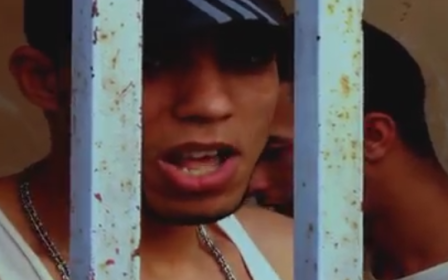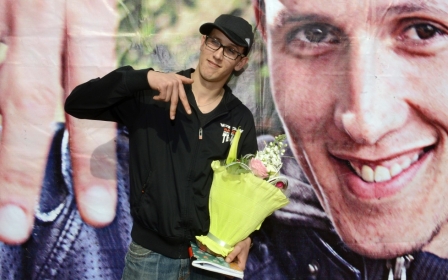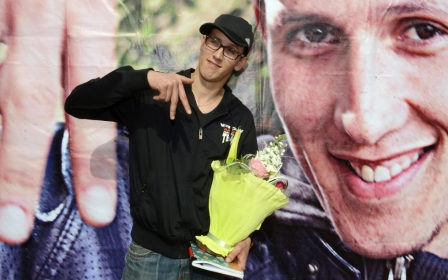Jailed Moroccan rapper to be released

Teenage Moroccan rapper, Othman Atiq, known as ‘Mr Crazy’ will be released on 12 November after serving his three month prison sentence for “offending a state institution… [and] harming public morality”, according to New York-based advocacy group Human Rights Watch.
Atiq, whose music videos portray the difficult lives of Casablanca’s unemployed youth, has been in custody since he was summoned by the Casablanca prosecutor on 8 August. He was then transferred to a juvenile detention on 12 August where he has been held since.
On 17 October, a Casablanca court convicted him of “insulting a state institution” under the penal code, “incitement to consume drugs” under the narcotics law of 15 November 1958 and producing and displaying content that is “harmful to public morality” under the press code, said his lawyer Saadia Harrab.
HRW has condemned his arrest as well as several other Moroccan rappers who have been handed prison sentences for their songs over the past year.
“The Moroccan government sends the wrong message by prosecuting a rapper like ‘Mr Crazy’ for peacefully expressing his views,” said HRW's Middle East and North Africa director, Sarah Leah Whitson.
“Jailing a 17-year-old for his songs hardly makes sense in a country that regularly hosts international music festivals and human rights conferences,” she added.
The court discounted Atiq’s assertion that he did not insult the police forces but was rather criticising individual police agents who were corrupt.
Harrab said that Atiq’s songs “Hyati Naqsa”(My Life is Incomplete), “Fatcha M’abs” (Scowling Face) and “Aqliya Mhabsa” (Prison Mindset) were among the music videos that figured in the prosecution’s evidence, along with “Brika Ma3ksa” (A Stubborn Lighter), “Casa Mkarfsa” (Casa is Dirty), “Passé noir” (Black Past), and “Amrek Tansa” (You Never Forget).
Atiq is not the first Moroccan rapper to be sentenced to prison for his songs. Rapper Mouad Belghawat, known as Lhaqed, a voice of Morocco's February 20 protest movement, was released from jail on 18 September after serving a four-month sentence for assaulting police.
According to him, Atiq is simply "a youth who recounts his reality. You can't judge him for his creativity, as if he were a thief."
The United Nations Human Rights Committee has stated in a General Comment on freedom of expression that public authorities “are legitimately subject to criticism and political opposition".
The Moroccan Constitution, in article 25, guarantees freedom of expression “in all its forms” and the “freedom to create, publish and display literary and artistic materials.”
"Since its [the Moroccan Constitution] adoption in 2011, authorities have yet to amend an array of laws that impose prison terms for nonviolent speech offenses, such as those used to prosecute Atiq," said HRW in a statement on Tuesday.
Stay informed with MEE's newsletters
Sign up to get the latest alerts, insights and analysis, starting with Turkey Unpacked
Middle East Eye delivers independent and unrivalled coverage and analysis of the Middle East, North Africa and beyond. To learn more about republishing this content and the associated fees, please fill out this form. More about MEE can be found here.




